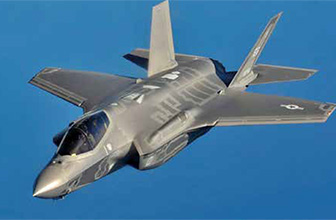Publications
US-Turkey Relations: CAATSA and Beyond  By Eugene Kogan, Tbilisi-based defence and security expert
By Eugene Kogan, Tbilisi-based defence and security expert
US-Turkey relations have a history of challenges in general but with the ascent of Prime Minister Recep Tayyip Erdogan in 2001, the challenges reached their peak with the failed coup of 15 July 2016 that Erdogan blamed on the US-based cleric, Fethullah Gulen.
By becoming the first elected executive President of Turkey, Erdoğan has also transformed Turkey from a secular, democratic and reliable Western allied regime guarding NATO’s South-Eastern flank to an Islamic, nationalist and autocratic regime. Erdoğan’s policy is undermining the foundation of US-Turkey relations. This article outlines three cases that highlight the undermining of this relationship: S-400 vs. F-35; Halkbank; the Turkish citizens working at the US Consulate General becoming targets of politically-motivated legal charges. READ MORE.
News
Blinken to meet with China counterparts in Alaska next week Secretary of State Antony Blinken will meet with top Chinese officials on March 18 during a stop in Alaska, the State Department said on Wednesday, marking the first high-level in-person contact between the two countries under the Biden administration.
Publications
In US–Iran Relations Compromise Is both Possible and Probable  By Benyamin Poghosyan, PhD, Chairman, Center for Political and Economic Strategic Studies
By Benyamin Poghosyan, PhD, Chairman, Center for Political and Economic Strategic Studies
Iranian hardliners are mostly rational political actors who are not ready to sacrifice Iran's security, and their own power, for the sake of ideological animosity towards the US or Israel. Therefore, even if a hardliner won next June’s presidential election in Iran compromise with the US on the nuclear file would be not only possible, but probable. This would be in the interest of both the US and Iran, as well as the entire Middle East region.
Relations with Iran are among the top priorities for the Biden administration. Since President Trump withdrew the US from the Iran nuclear deal and imposed new sanctions in May 2018, Washington and Tehran have been on a collision course. Iran's decision to start to break some of the deal’s requirements in May 2019, and the assassination of General Qasem Soleimani in January 2020, added fuel to bilateral animosity. READ MORE
Publications
What’s Next in Armenia – Russia Relations  By Benyamin Poghosyan, PhD, Chairman, Center for Political and Economic Strategic Studies
By Benyamin Poghosyan, PhD, Chairman, Center for Political and Economic Strategic Studies
Relations with Russia were always a cornerstone for Armenian foreign policy. Since Armenia has regained its independence in 1991, Russia has been its essential political and military ally. Several reasons were behind such a choice – geopolitics, history, significant Armenian community in Russia. The Russian military base and border troops have been deployed in Armenia, and Yerevan joined Collective Security Treaty Organization and Eurasian Economic Union. Meanwhile, in the last 10-15 years, a discourse about Armenia’s dangerous overdependence on Russia was prevalent in Armenian and Western experts’ circles. Many perceived Armenia as a client state of Russia and called for changes. READ MORE
Publications
US-Turkey Relations Are Difficult but Enduring  By Benyamin Poghosyan, PhD, Chairman, Center for Political and Economic Strategic Studies
By Benyamin Poghosyan, PhD, Chairman, Center for Political and Economic Strategic Studies
US-Turkey relations have passed through significant transformations in the last decade. President Obama started by seeking to build a "model partnership" with Turkey during his first term in office, but later he confronted Turkey over the growing authoritarianism of President Recep Tayyip Erdogan. The US decision to choose the Syrian Kurds as the main ally in their fight against ISIS in Syria triggered significant resentment from Turkey. Ankara perceives the Kurdish YPG fighters as a Syrian branch of Kurdistan Workers Party (PKK), which was identified as a terrorist organisation by both the US and Turkey. Ankara repeatedly warned the US "not to use terrorists to fight other terrorists". READ MORE
1
...
132
133
134
...
858